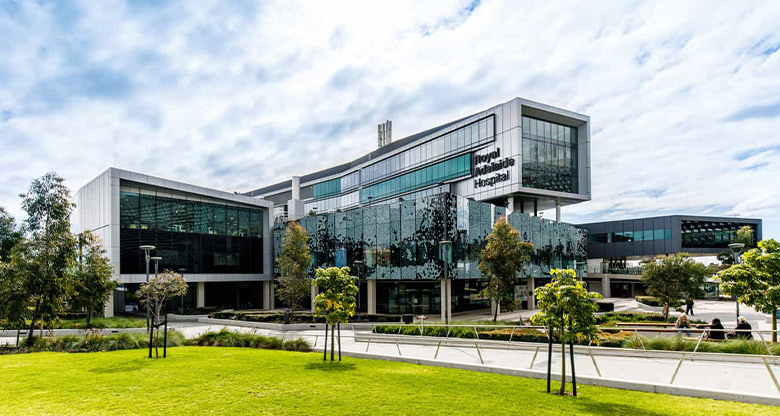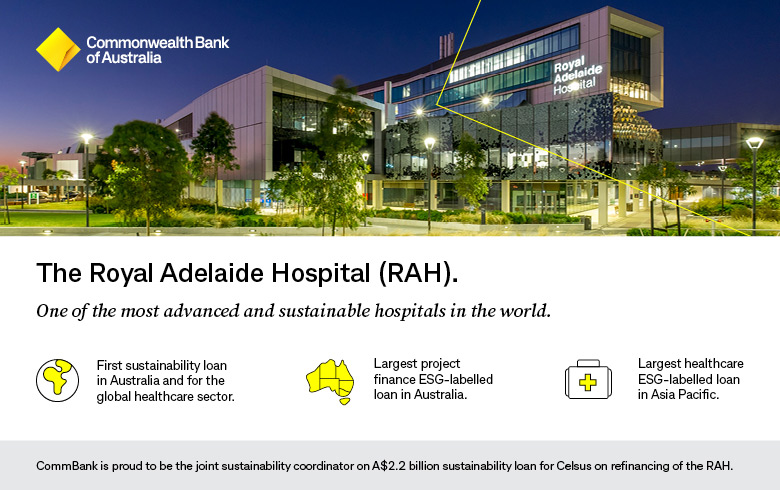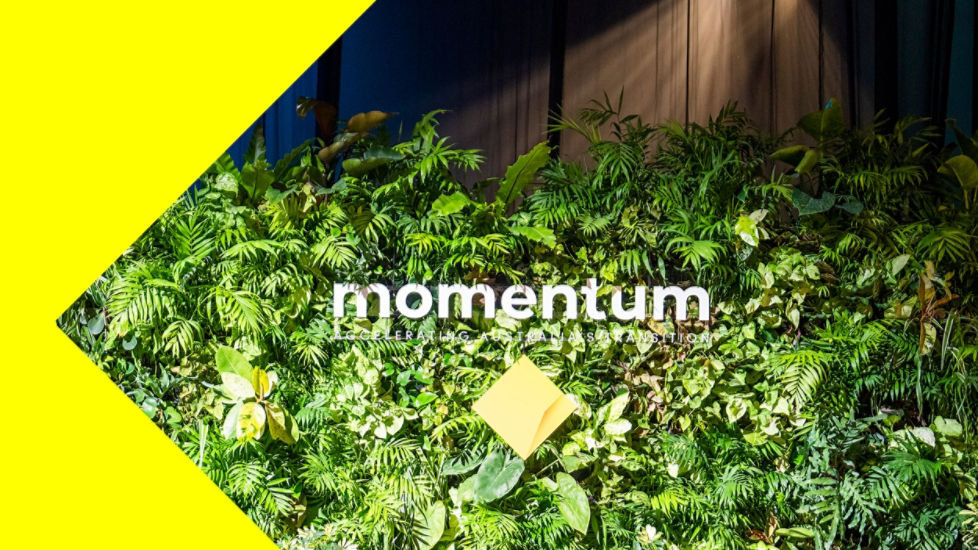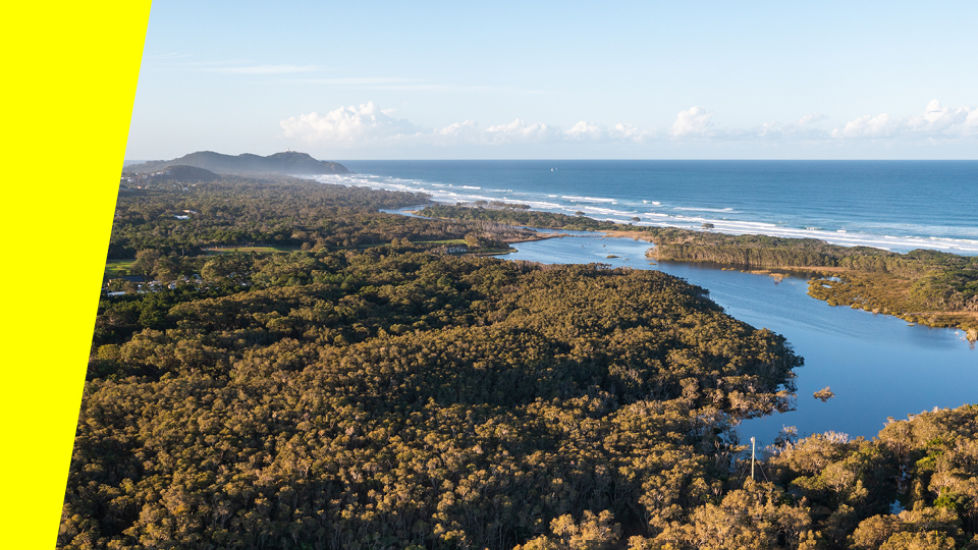Celsus, the commercial operator of the Royal Adelaide Hospital (RAH), recently secured a $2.2 billion sustainability loan, raising the standard for sustainability goals and social inclusion in major infrastructure projects and the healthcare sector.
The loan is not only the first sustainability loan in Australia, it’s the first in the global healthcare sector and is the largest project finance ESG-labelled loan in Australia.
Celsus has committed to publicly report, on an annual basis, on how it is fulfilling its objectives for social inclusion and sustainability. The hospital will report on how many patients and services it provided, plus data on things such as energy use and greenhouse gas emissions.
Celsus CEO Di Mantell says brokering the first sustainability loan attracts attention from the broader market and provides another platform to push the agenda in discussions with the Celsus board and peer hospitals.
“We want to keep seeking out opportunities to improve the way we manage it in the environment we’re in, and then in the broader environment, and do the best we can to make it a long-term sustainable asset,” says Mantell. “I think it’s great that we put that opportunity out there for hopefully other people to leverage off.”
Access to essential healthcare for all
Access to essential healthcare for all is the hallmark of the social principles of the loan. Mantell says the hospital is available to everyone, regardless of their social or income status. It caters to indigenous, culturally and linguistically diverse people, the disadvantaged and elderly, and the general population. The needs of South Australia’s Indigenous population have been especially catered for.
The facility itself is the first large-scale hospital complex in Australia to achieve a 4-Star Green Star rating from the Green Building Council of Australia. Mantell says the design premise was to build “a hospital in a park and a park in a hospital”. All patient rooms face outside – including those in ICU – and the facility has more than 70 indoor courtyards and sky gardens.
“You only build a brand-new hospital of this type every 50 years,” says Mantell. “So when you build them, you’ve got to get it right. It’s got to be sustainable … and to provide services for a long time.”





